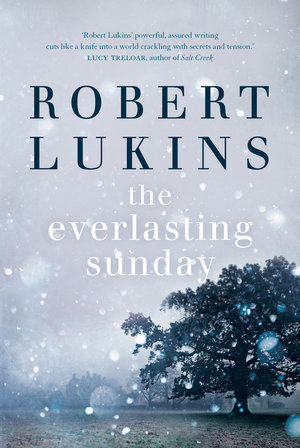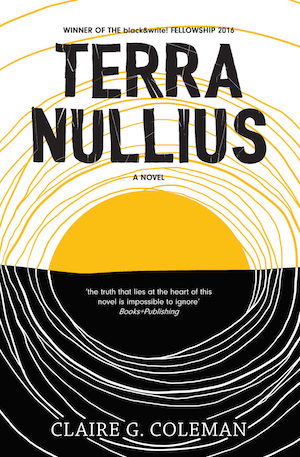Molly McLaughlin talks with Australian writers, asking should I study creative writing?
As a full-time freelance writer, people often ask me why I didn’t study anything to do with my job. The answer is complex. Studying journalism or creative writing at a tertiary level is expensive and the costs and benefits vary widely between institutions. Of course, a university degree gives students the chance to acquire valuable information, as well as potential networking opportunities. But for many writers across the industry, myself included, their careers have involved much more on the job learning than formal education.
Despite always loving writing and literature, I entered university during the great media panic of the early 2010s. I come from a privileged background and both my parents went to university, so getting some kind of degree seemed like a foregone conclusion. So to improve my job prospects, I decided to enrol in a double degree in Arts and Economics.
However, I learned almost everything I know from my first writing part-time job at a women’s lifestyle website. My colleagues were incredibly supportive and always available to teach me everything from how to resize a photo or how to pursue the beginnings of a story idea. Of course, I made plenty of mistakes and still Google lots of things I should already know. But thanks to that experience, I graduated university with practical skills and a solid portfolio of published articles that allowed me to jump straight into freelancing.
Talking to speculative fiction author Brian Craddock, I learn that he also found support from his fellow writers. Brian had a solid grounding in the creative aspects of writing as he briefly studied Film and Television, but he found the practical questions about formatting his work and approaching publishers to be the most difficult.
“Relying on others, on their experience and their knowledge, is absolutely key. And to this end, network! Having a list of writers and publishers whom I can contact for advice has been invaluable.”

Cher Tan, a Melbourne-based writer and Kill Your Darlings' 2019 New Critic, experience differs to Brian’s. Cher did not attend university but has completed a couple of short writing courses sponsored by grants that helped her gain confidence and work on her craft.
“My path to being a writer has been (and still is!) very haphazard; as it was mostly self-taught I've had to learn as I go,” she explains. “The decision [not to go to university] was mostly spurred by a combination of bad mental health and coming from a lower socio-economic background.”
As she worked to develop her skills independently, Cher felt she lacked guidance and had difficulty finding sources of editorial feedback. She briefly considered going to university, but found herself learning more through reading widely, especially interviews with writers and artists she admires.
“It was mostly borne out of insecurity, particularly being surrounded by many peers and colleagues who not only had gone to uni, but have multiple degrees. I felt as if I was missing something, that there was some sort of ‘gap’ I needed to fill in order to catch up. But I no longer think that.”
*
Like many in the industry, Robert Lukins juggles a day job with writing on the side. He has degrees in engineering, teaching and art history and has worked in a wide variety of careers. His debut novel, The Everlasting Sunday, was published in 2018.
“I've always struggled to balance my working life with my writing. I worked for a long time as a freelance arts and music writer, back when there were more paying, hardcopy publications and it was possible to make this pay the rent. I then switched to dull office jobs, which left the writing part of my brain more intact but introduced the problem of having a dull office job.”
However, the experience of writing ten thousand words or more a week as an arts writer was invaluable. Robert is also the father to a toddler and exclusively writes during his commute to work and his lunch break to preserve time with his family.

“Working as a freelance writer was fucking hard work, but I now realise that it was great training as it developed my ability to get the thoughts down on the page with as little interference as possible.”
Unlike Robert, romance author Renee Dahlia came to creative writing without an arts background. She studied physics and mathematics, partly because she knew it wouldn’t include any essays. Then, through her work in data-analysis, she fell into writing data-based articles for a horse racing magazine, which led to ghost writing. Eventually, she decided to take some short courses through Romance Writers Australia.
“I thought I’d try writing fiction as a personal challenge. Because I was already a huge romance reader, it was an easy decision to write romance. I spent nearly a year doing every course of theirs that I could. During that time, I wrote my novel, and polished it with each course.”
Although she recently published her fourteenth novel, Betrayed, Renee still sometimes struggles as a largely self-taught author.
“Imposter syndrome is a big one. I worry that people will see my lack of education around creative writing, literature, or anything artistic. The upside of having no formal training is that I had no baseline for failure either. I didn’t know if my writing was dreadful and I assumed I’d learn as I went along.”

Claire G. Coleman, author of Terra Nullius and forthcoming novel The Old Lie, wrote her first book while travelling around Australia in a caravan. She is completely self-taught and, like Renee, found her biggest obstacle to be confidence.
“It was hard for me to imagine that I could be a writer. I read extensively both within and outside of my preferred genres. I learned good writing from reading good writing. Nobody can know if they are a talented writer or not until they write something.”
*
Talking to writers who have taken many different career paths only reinforces my belief that there’s no one way to do this. Being a writer means making mistakes, learning from others in the field and a whole lot of hard work. The only prerequisite is believing that your perspective and your words are valuable.
Robert agrees that figuring out how to be your own kind of writer is part of the process.
“I'm glad it took me a long time to get my first novel published; I'm a better writer now than I was five, ten, fifteen, or twenty years ago. There’s no magic trick to any of this and every writer needs to find their own best solution to a blank page.”
Cher advises emerging writers to seek to be edited, rather than just published, and to recognise that just because your perspective is new or different, that doesn’t make it wrong. And most importantly, don’t worry too much about what other people think.
“Being a writer isn't as glamorous as most people make it out to be. We're snobs and hacks!”
Want more writing tips and tricks? Join us on April 10 to learn from Alice Grundy (Seizure, Brio Books) on all things finding a publisher at our short online course. Tickets from as little as $17 for our concession and low-income writers.
 Building Blocs
Building Blocs






